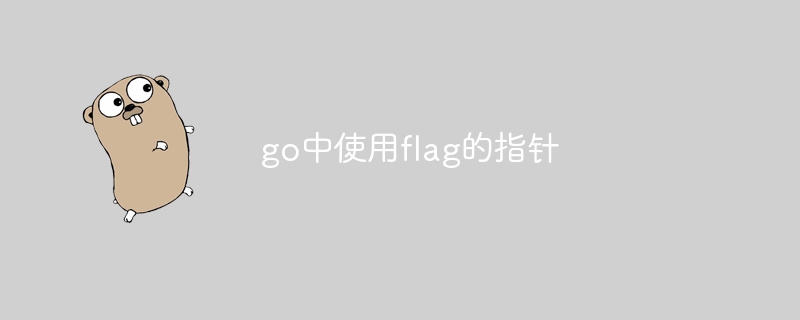

php editor Xiaoxin introduces a method of using flag pointers in Go language. In the Go language, the flag package provides a way to handle command line parameters. By using the flag pointer, we can easily obtain and process the value of the command line parameter. This approach improves code readability and flexibility, making it easier to write command-line tools and applications. In this article, we will explain in detail how to use flag pointers in the Go language. We hope it will be helpful to everyone.
I want to know if the token is of *string type, and then we get the value by reference. But if the token has already been dereferenced, why do I need to dereference it again?
func mustToken() string {
token := flag.String("t", "", "token for access to tg bot")
flag.Parse()
if *token == "" {
log.Fatal("token isnt specified")
}
return *token
}I tried to google it but couldn't quite figure it out.
What happens in the above program is as follows:
string variable and registers the variable, its name and default value, and the flags that are set. flag.String returns a pointer to an allocated variable. *token Dereference the pointer returned from flag.String to obtain the value of the registered string variable. The program uses the expression *token twice because the program accesses the value twice. The above is the detailed content of Using flag pointers in go. For more information, please follow other related articles on the PHP Chinese website!
 Usage of Type keyword in Go
Usage of Type keyword in Go
 How to implement linked list in go
How to implement linked list in go
 What are the Go language programming software?
What are the Go language programming software?
 How to learn go language from 0 basics
How to learn go language from 0 basics
 What are the methods to implement operator overloading in Go language?
What are the methods to implement operator overloading in Go language?
 What are the operators in Go language?
What are the operators in Go language?
 How to set path environment variable
How to set path environment variable
 Baidu SEO keyword ranking optimization method
Baidu SEO keyword ranking optimization method




